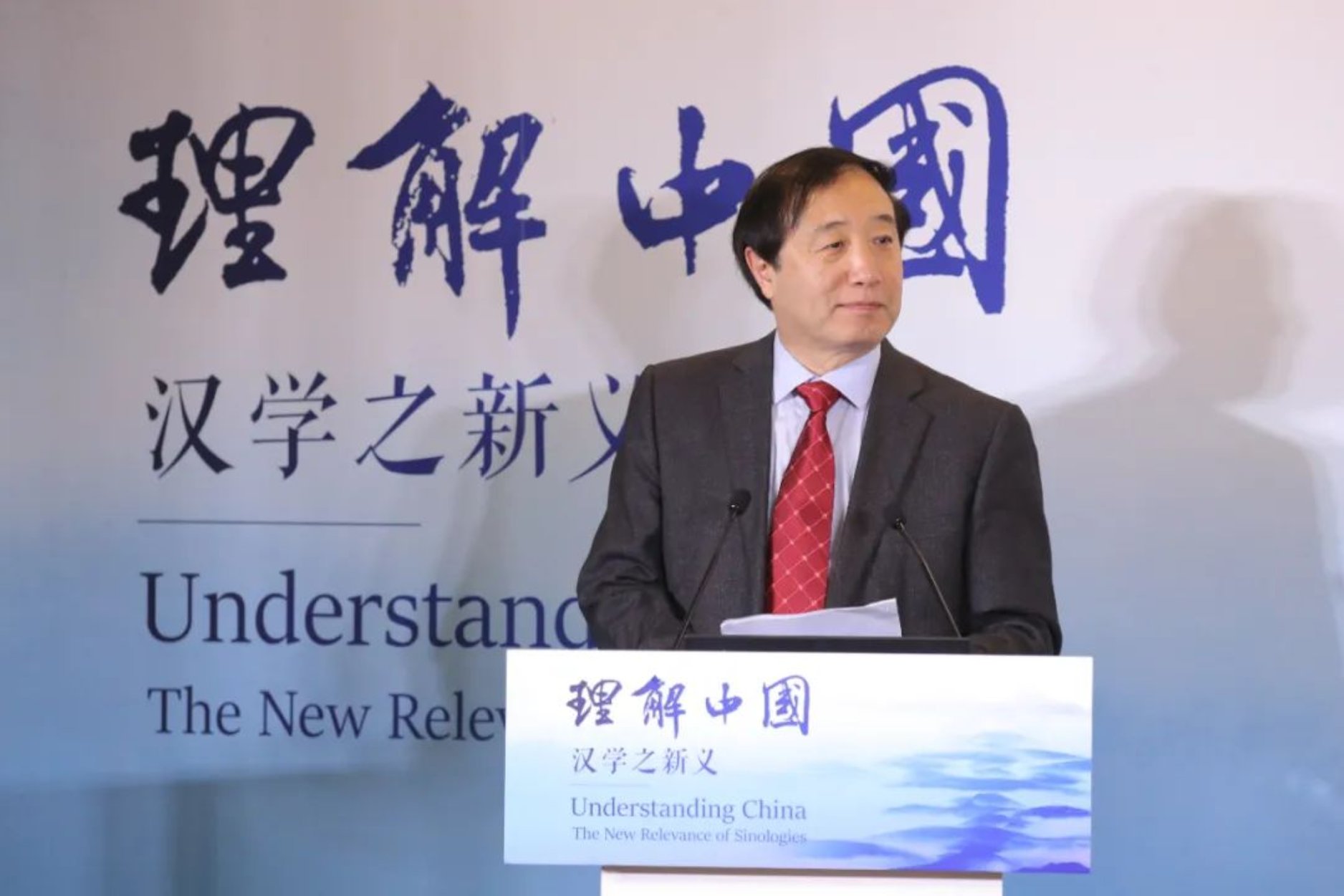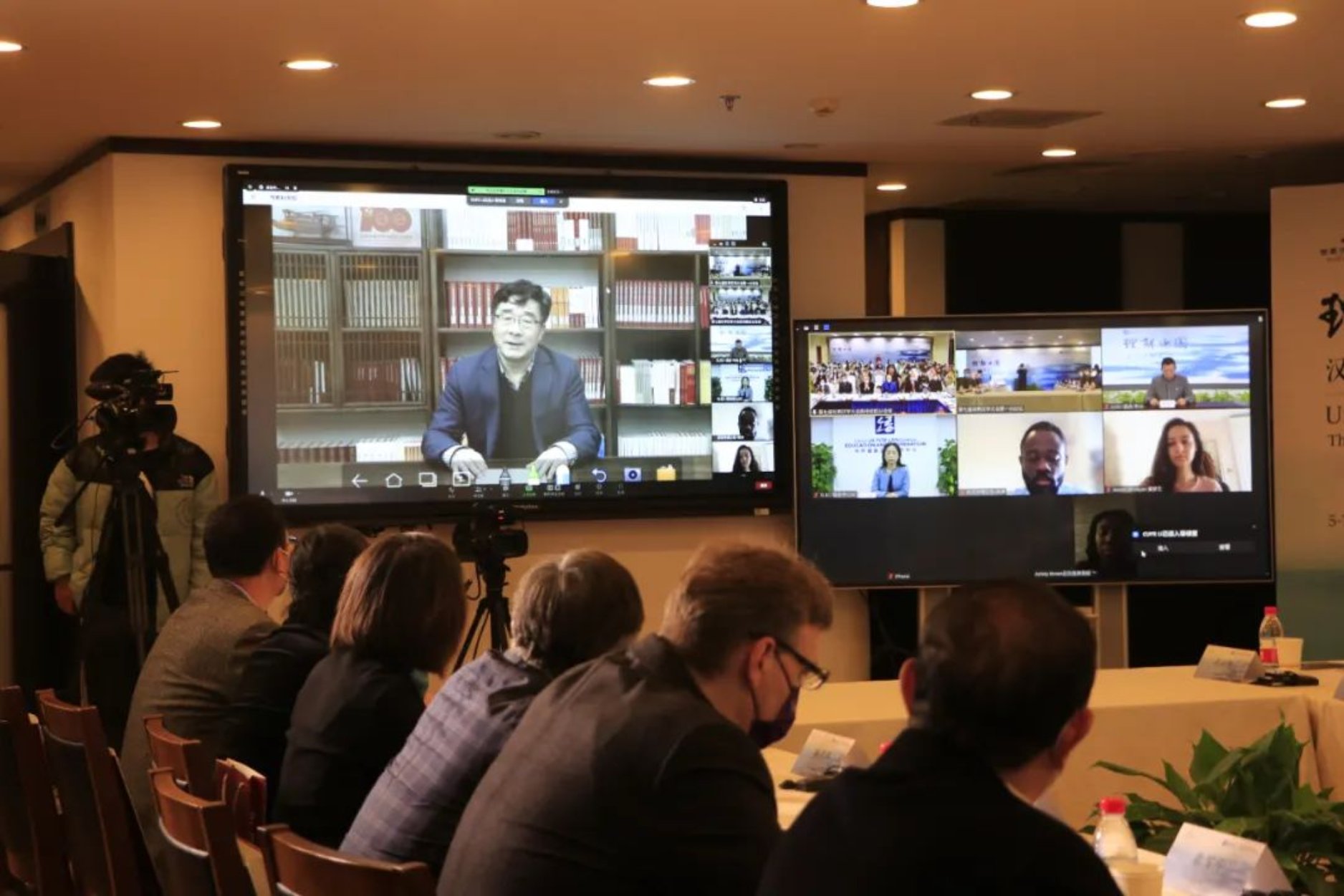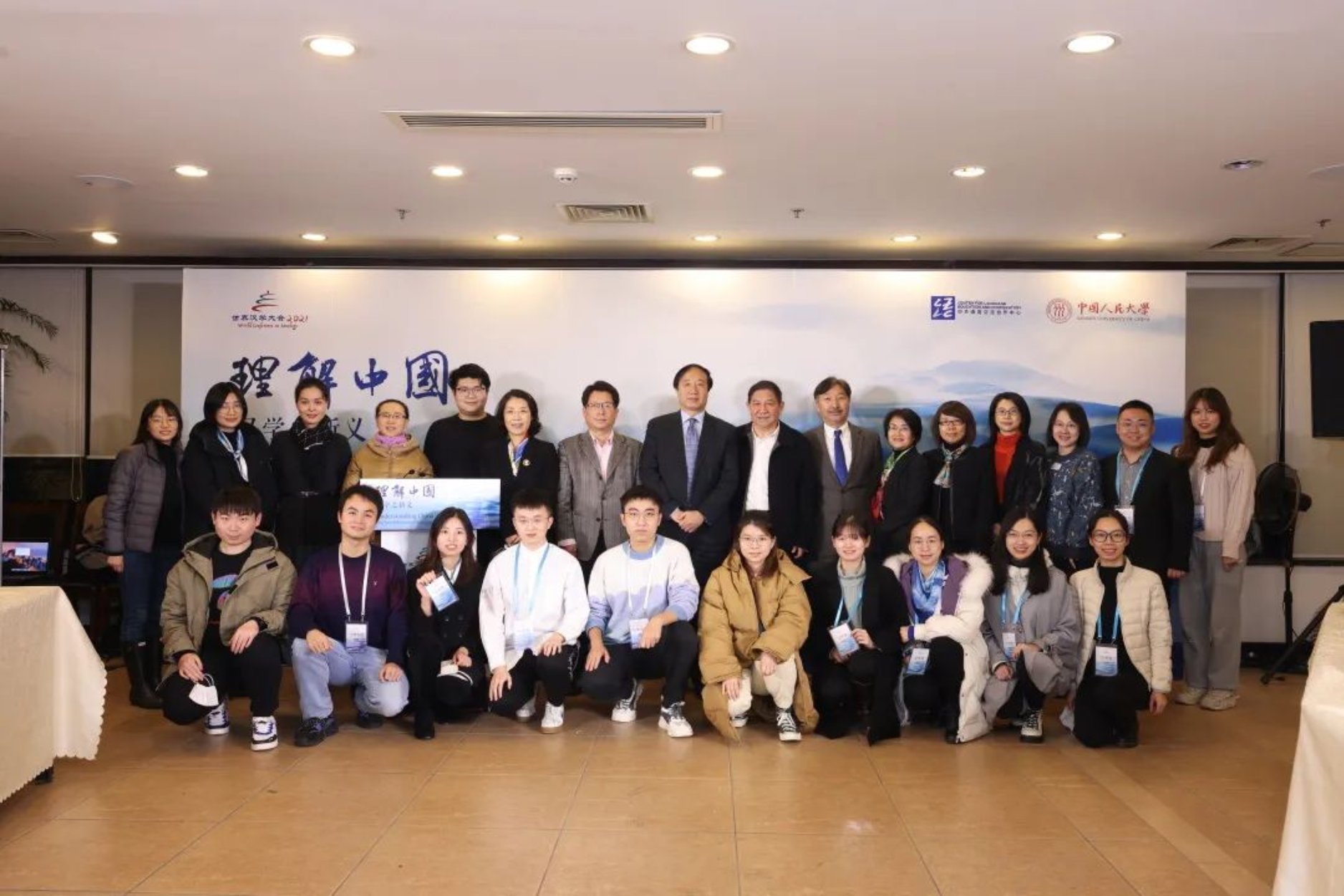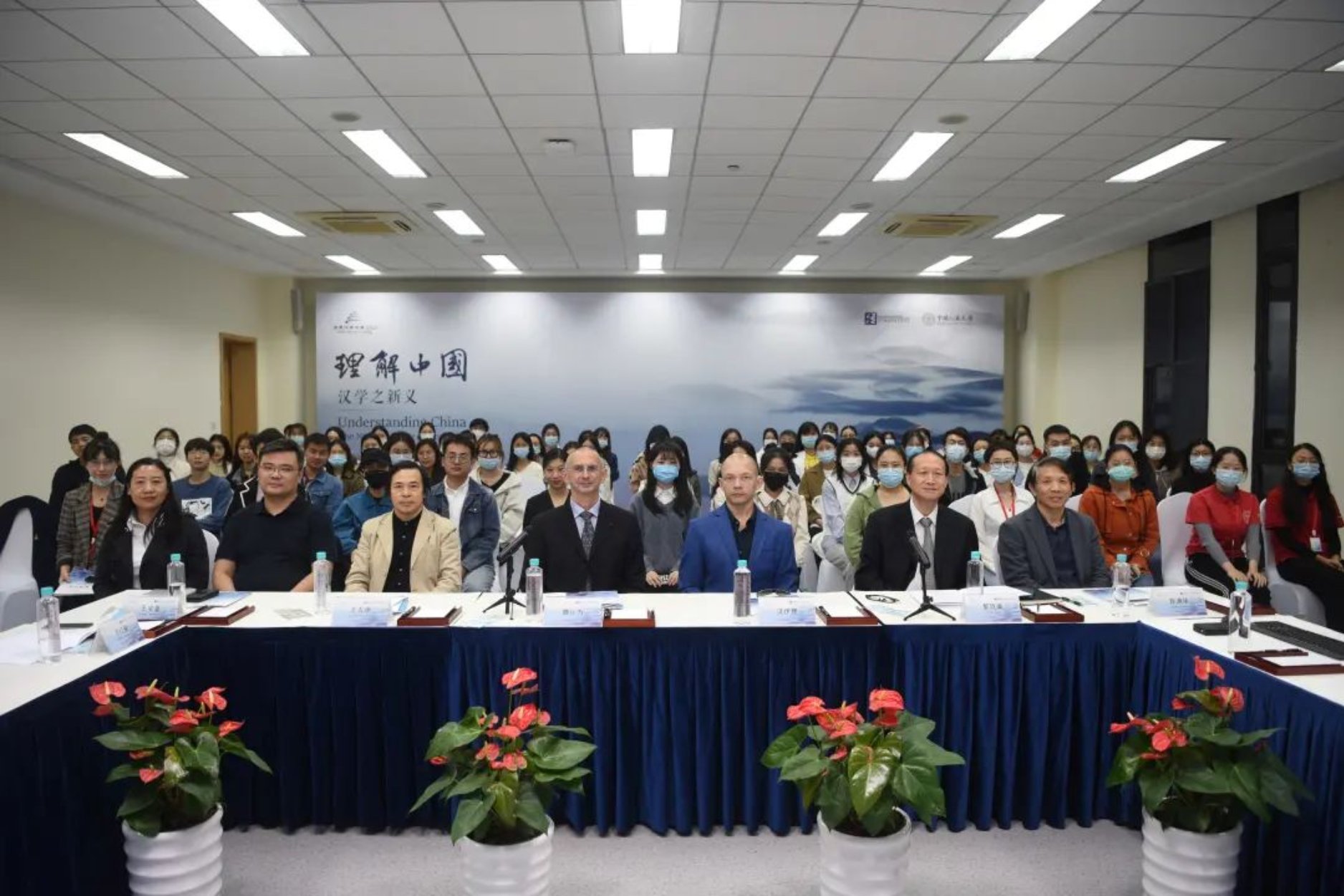Forum
2021 World Conference on Sinology successfully concluded
The 2021 World Conference on Sinology was held from November 5th to 7th under the theme “Understanding China: New Relevance of Sinology”. The conference was co-hosted by Renmin University of China (RUC) and Center for Language Education and Cooperation. Considering the pandemic situation, the conference was held online and video conferences were set up in both the Zhongguancun campus and Suzhou campus of RUC. Almost 100 sinologists from over 30 countries and Chinese scholars gathered online to discuss Sinology and its various aspects. The Conference was divided into five panel discussion topics:
1)Translation and Conversation in Sinology
2)Tradition and Modern Transition in Sinology
3)Sinologies and Interdisciplinary Studies
4)Development of Sinologies and Research on Teaching Chinese as a Foreign Language
5)Overseas Sinologies and Chinese Scholarship

Hosted by Mr. Du Peng, Vice-President of Renmin University of China and Dean of Silk Road School(SRS), the opening ceremony was attended by distinguished guests including Mr. Ma Jianfei, Director of Center for Language Education and Cooperation and Deputy Director, Mr. Jing Wei.

The conference was convened by Mr. Liu Wei, President of Renmin University of China after delivering an opening video speech. Mr. Liu pointed out that “mountains and rivers are different, while the wind and moon share the same sky” indicating that we may be separated by distance but our common aspiration for dialogue and mutual learning will not be impacted. He further introduced that the conference aims to tell Chinese stories from the perspective of new relevance of Sinology, promote the understanding of China and discover “new relevance of Sinology” through “understanding China”. Known for its humanities and social sciences, Renmin University of China is an important platform for academic and cultural exchanges in China and abroad. Hence, RUC hopes to strengthen communication and interaction with scholars from all over the world and enhance friendship and jointly contribute towards the development of Sinology in the world.
Mr. Ma Jianfei, Director of the Center for Language Education and Cooperation, in his speech, shared that this was the first time in the history of World Conference on Sinology that more than 30 young scholars were given the opportunity to present on this platform. Furthermore, he firmly believes that with the joint efforts of all experts and scholars and the bond of “Sinology and Chinese Studies Academic Community” will be stronger and closer in the future.

The conference was then followed by four groups of keynote speeches in the following days, all in the form of dialogue between Chinese and foreign scholars on the conference topic. First two keynote speeches were delivered during the opening and the remaining two during the closing ceremony.
Throughout the two days of dialogues on various aspects of Sinology, students from different universities from inside China as well as around the world joined in together to participate. Among the them were master’s students of Silk Road School (SRS), RUC. The first year master’s students of were fascinated by the variety of discourse on Sinology which ranged from language and literature to climate change and international relations.

Aneka R. Rajbhandari, a first year master’s student from Nepal at the Silk Road School, Renmin University of China shared that “World Conference on Sinology is a great opportunity for people from different countries to listen to discourse on China in China and from China which will not only contribute to the existing discussion on China but also possibly provide some fresh perspective to the existing euro-centric point of view.”
Another SRS master’s student from Iran, Mohammad Derakhshan who attended the conference expressed,
“I admire the way this conference was designed. It focused on recognizing China comparatively. I believe, when we want to make a thorough understanding of a sociopolitical entity, one way could be to do it comparatively. In this dialogue, China was partly introduced through its similarities and differences with other countries, the result of which was to transform the core issue of the conference, Understanding China” more effectively. I really admire it and I wish to benefit more from these events.”
Liliane Umutoniwase, one of the attendees and SRS master’s student from Rwanda, attended the conference and shared,
“From what I heard, I had the chance to learn more about the global history. Empirical histories and the tributary system of the Ming- Qing china’s model
The Ming Dynasty ruled China from 1368 to 1644 A.D., during which China's population would double. Known for its trade expansion to the outside world that established cultural ties with the West, the Ming Dynasty is also remembered for its drama, literature and world-renowned porcelain.”

Since the beginning of World Conference on Sinology in 2007 to the conclusion of the recent 2021 World Conference on Sinology, there have been 7 successful conferences with the common theme of “understanding” and common enthusiasm for learning. The 7th World Conference on Sinology further focused on discovering new meaning of Sinology through “understanding China”. The “new meaning of Sinology” lies in the fact that Sinology has not only focused on classical wisdom and literature but has overtime, developed into a comprehensive study of China. This has linked Chinese tradition from multiple perspectives of politics, economics, society, culture, science and technology and history. This conference has been an important medium for China to open up to the world and let the world understand China, but also equally important medium for China to understand world.
Writer: Aneka Rebecca Rajbhandarifrom Nepal (21级SRS)
Editor: Zhang Mingyu

